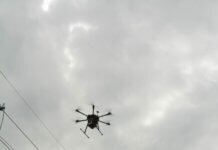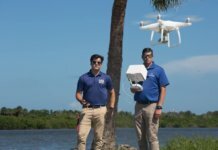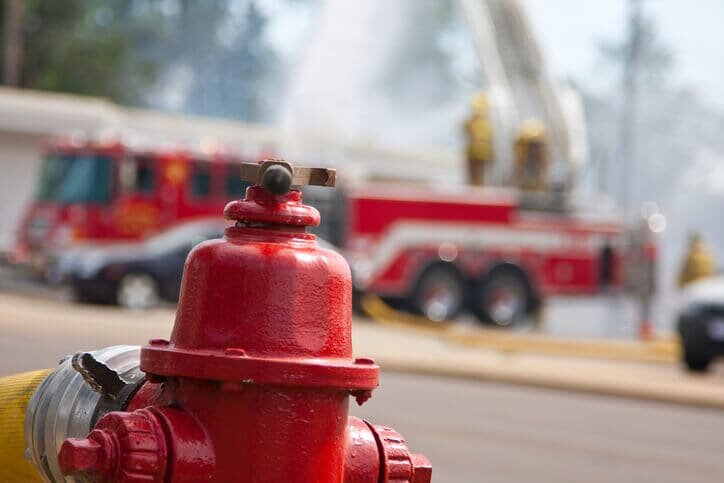The Los Angeles Fire Department (LAFD) has taken a step toward adopting unmanned aircraft systems (UAS), which the department believes could provide officers with “greater awareness and access to critical information.” Importantly, the agency is emphasizing its transparency in the process.
The Board of Fire Commissioners has approved a report, addressed to the board on May 17 from Fire Chief Ralph M. Terrazas, that outlines “the feasibility of utilizing drones to assess significant incidents, on how drones could be used for information-gathering during large fires, and what issues the use of drones by the LAFD may raise.”
The LAFD says the approval marks “the first step in its public process” of adopting the technology. The report must now be approved by the city council; after that, the LAFD said it would then become “one of the first major metropolitan departments” to obtain Federal Aviation Administration (FAA) authorization to own and operate drones.
The equipment would be funded by the Los Angeles Fire Department Foundation, says the report, which adds that the UAS could offer “significant cost-savings” at incidents, such as assessing damage/hazards and finding missing persons.
The report – the result of a city council request from last year, as well as input from the American Civil Liberties Union (ACLU) – was compiled after the LAFD brought together a committee with members with a mixed bag of duties: e.g., fire prevention, public safety and training. They then got together with other agencies deploying drones, such as the Ventura County, Calif., Sheriff’s Department, and came up with a proposed plan for the LAFD’s potential use of the technology.
Notably, it outlines surveillance concerns addressed by a 22-page report from the ACLU. The LAFD maintains that it would establish a “media and public awareness campaign” to address any concerns from citizens, offer an opportunity for feedback, keep the public informed on the progress of the drone program and host flight demos.
“The committee is working diligently to ensure that we do not suggest or implement anything that falls outside of the strict guidelines set by the FAA, state and local law or that could disrupt public trust,” the report explains.
Stressing the importance of keeping the public informed on the relatively new, often misunderstood technology is nothing new, of course: Last year at the Commercial UAV Expo in Las Vegas, Xenon Dragan, president and founder of Draganfly Innovations, noted that one of the most important things for public agencies to do before bringing drones on board is to garner public support.
“The worst thing that can happen? Keep people shut out, and they’re going to rebel against you,” he warned.
Recently, elsewhere in Southern California, the Chula Vista fire and police departments wrapped up their procedures for UAS operations and made sure to encourage public input, including at what they called “Coffee with a Cop” events.
Three years ago, a coalition fighting against the Los Angeles Police Department’s use of drones argued that unmanned aircraft represent a “militarization of local law enforcement” and “exacerbate the flagrant violation of privacy rights” of citizens. Even earlier this year, the group, dubbed the “Stop LAPD Spying Coalition” was still protesting the LAPD’s plans to deploy drones.
However, the LAFD points out in its report that “creating technology to increase firefighter safety is nothing new.”
“Tools that provide our fire service professionals greater awareness and access to critical information allows for safer and more effective action,” the report contends. “It is our obligation to do everything possible to protect the safety and lives of those who are willing to defend the safety and lives of the citizens of Los Angeles.”












Everyone keeps saying “WE’LL BE THE FIRST!”…. and it just ain’t so.
The Austin Fire Department RED Team (Robotics Emergency Deployment) has been up and running for over a year now. They have a jurisdictional COA that covers 7 counties, night waivers, and other privileges. Some of the statements in this story are taken right out of that playbook. The program administrator there has been very good about sharing all the steps they have taken and the NFPA is even involved. So for them to say they will be first (along with everyone else that has been saying that) is just a bit ridiculous.